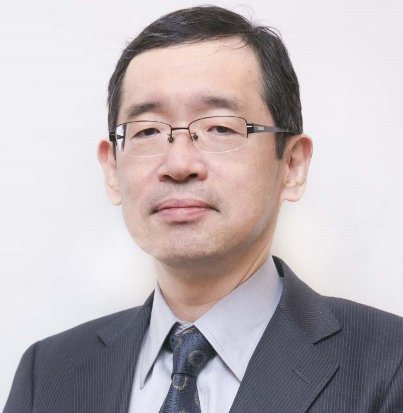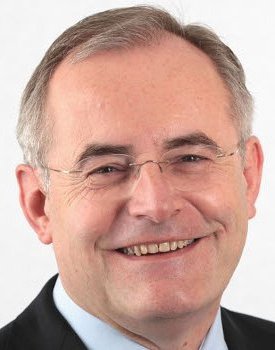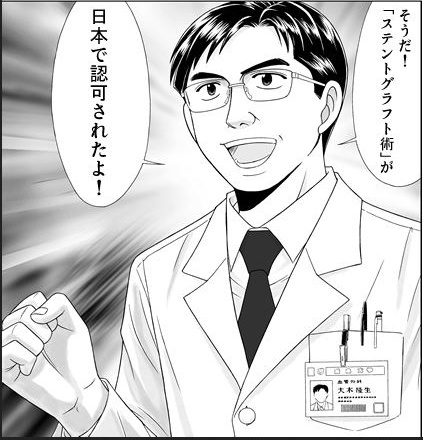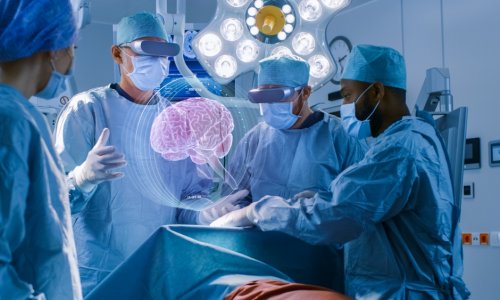Source: Doctor's Gate/Atsushi Mori
Article • Japanese and German surgeons seek answers
Smiles solidify a surgical team
Surgeons are growing older and the lack of junior surgeons is widespread – a situation acknowledged by most experts at the annual congress of the German Society of Surgery (DGCH) in Berlin, who debated whether the need is greater to increase specialists or, on the other hand, generalists. Both sides produced convincing arguments, but a third group took an entirely different tack.
Report: Wolfgang Behrends
Surgery is one of the reasons why karōshi, death by overworking, continues to be a major issue in Japan
Hideo Baba
In the session ‘Generalists vs. Specialists’, surgeons from Germany and Tokyo, Nagoya and Kumamoto, explored why medical students appeared to shun their fields.
‘High risk, comparably low pay and 60 or more weekly hours – are the difficulties surgeons have to deal with,’ Professor Hideo Baba pointed out. ‘Surgery is one of the reasons why karōshi, death by overworking, continues to be a major issue in Japan,’ the Head of Gastrointestinal Surgery at Kumamoto University explained. In the end this is a lose-lose situation, he added: ‘Overworked surgeons make more mistakes – a fact that negatively affects students as well as the reputation of the hospitals.’

Surgeon shortages are a big problem, Professor Yasuhiro Kodera agrees. ‘The number of certified surgeons, be it general or specialised surgery, is a direct quality indicator for a hospital,’ the Head of Surgery at Nagoya University pointed out.
As a rule of thumb, the higher the number of surgeons, the lower patient mortality. In this situation the fact that fewer and fewer medical students opt for a career in surgery, a trend in Japan as well as in Germany, is cause for concern.
Enthused in theory, disappointed in practice
‘Strangely enough, many junior students do want to become surgeons,’ said Benedikt Braun from Saarland University Hospital in Homburg, Germany. However, the first year as physicians is often a reality check: hardly any team spirit, poor work-life balance and little appreciation. No wonder young surgeons, when reduced to nameless instrument holders, re-evaluate their career options. Above all, female medical students are turned off by a gruff atmosphere.
Although initially 50 percent of students would consider working as surgeons, after their first practical experiences only seven percent still do so. ‘The discipline per se is well positioned and attractive but the working conditions are abominable,’ Braun confirmed. Moreover, this assistant physician pointed out that few hospitals have a strategy to attract and retain young surgeons. He is optimistic that ‘as soon as this changes, the problem can be solved’.
Source: Shutterstock/DeReGe

Dr Joachim Jähne observed a different problem: imbalance to the detriment of general surgery. ‘There’s a strong trend towards specialisation,’ said the Medical Director of the Department of General and Visceral Surgery at Diakovere Henriettenstift in Hanover. ‘This specialisation is more attractive for young doctors – often better work hours and you are not involved in stressful clinic routine anymore,’ he explained. While this development is characteristic for industrialised countries such as Germany or Japan, these countries also need physicians who are more broadly trained and experienced, be it in trauma surgery or to provide healthcare in rural areas. ‘Therefore we have to make the discipline as such more attractive for junior physicians,’ Jähne advises.
‘I will smile at each and every one’

Better working hours, higher salaries – these are not necessarily the prime drivers for young surgeons, according to Professor Dr Takao Ohki. ‘The most important issue is job satisfaction,’ he believes. As Head of Visceral Surgery at Jikei University School of Medicine in Tokyo, he squarely puts responsibility on one person: himself. ‘I can’t expect a positive attitude from my team members if I am not a role model. Therefore my philosophy is: I will smile at each and every one. I know every person on my team, student and physician alike, by name. This is by no means the case in every department.’
The fact that Professor Ohki is serious about being a role model for his young colleagues has already been acknowledged in the media. In the Manga series ‘Dr Tokimeki’, he – smilingly of course – helps young surgeons with rare or risky procedures.
The times they are a-changin’
This also means that the managing director of a hospital has to be a physician, not an economist
Hans-Rudolf Raab
The self-perception of surgeons continues to be shaped by the times when surgery icons such as Ferdinand Sauerbruch were revered as demi-gods, Professor Dr Hans-Rudolf Raab, Medical Director of the Surgery Department at Oldenburg Hospital, confirmed, and then added: ‘The times they are a-changing’. However, the more important problem, Raab underlines, is the fact that, today, economy calls the tune in many hospitals, curtailing the autonomy of medical directors and thus impairing the quality of care: ‘It is high time for us surgeons to regain control of our own fate. This also means that the managing director of a hospital has to be a physician, not an economist.’
11.11.2018





